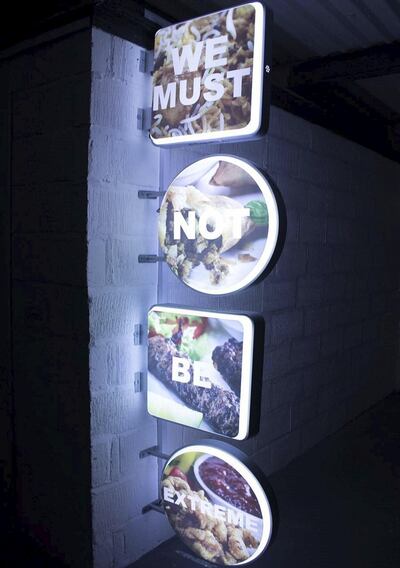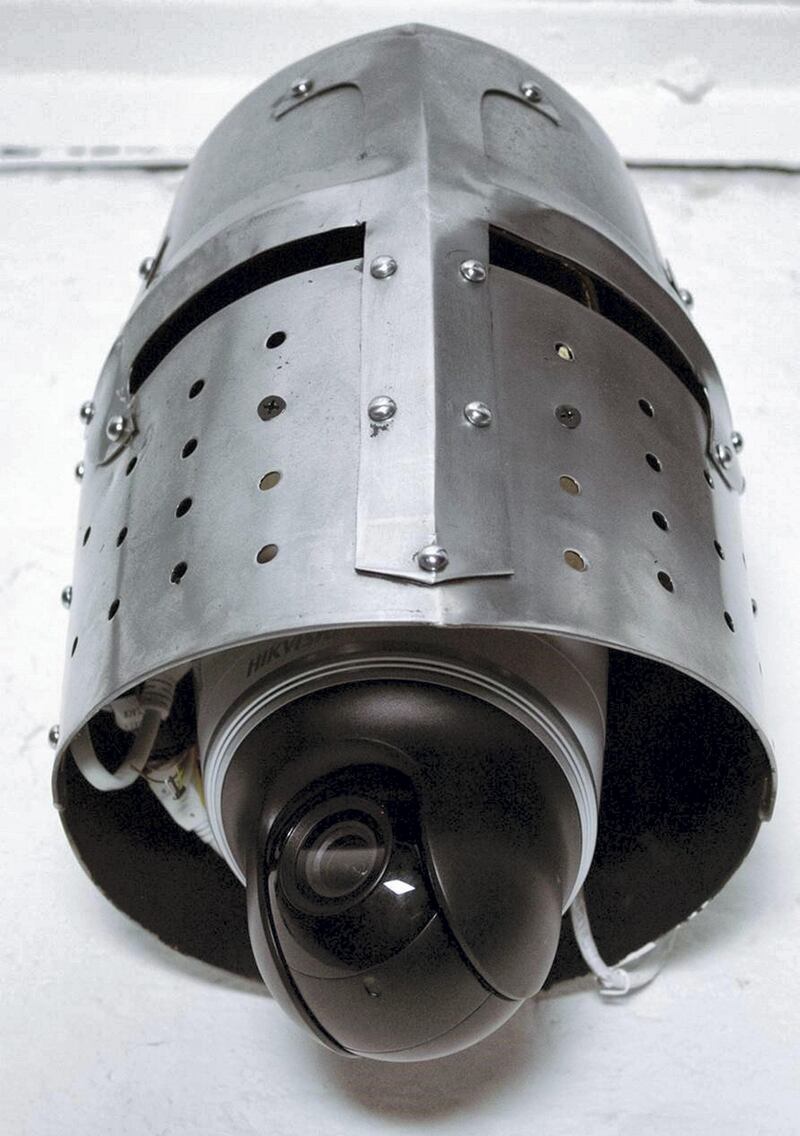From the moment, the visitor enters the gallery they're being watched. A camera hidden inside a crusader helmet follows the new arrival around the space. The footage is projected on a large screen. The effect is one of disturbing and constant scrutiny.
The installation is one of 11 at a Birmingham gallery that charts the experiences of minority communities in Britain, an attempt by artist Faisal Hussain make sense of the rise in anti-Muslim feeling in the United Kingdom and wider afield. The inspiration for the all-seeing camera was Project Champion – an ill-conceived anti-terrorist surveillance programme set up in parts of the UK's second city. Police put up more than 200 cameras ringing Muslim communities while misleading local politicians about the project's scale and intention, a report into the debacle later concluded. The programme followed terrorist attacks on a London nightclub and Glasgow Airport, but was swiftly seen as a clumsy and unfair targeting of a community.
"The Project was unacceptable in the way it was constructed to target the Muslim community," a Birmingham City Council review of the scheme found. Police apologised and took down more than 200 cameras that had been funded in part by £3 million (Dh14.7 million) of central government money.
It was a high-profile but by no means isolated incident of friction between Muslims and the authorities that Hussain has identified for his exhibition Suspect Objects Suspect Subjects in the city, home to one of the highest Muslim populations in Europe.

The result is a playful attempt at unravelling some of the most divisive issues that have been identified by Muslim communities both in Britain and abroad. Hussain, 40, pokes fun at some of the most menacing. He has blown up a late-night racist text message he received that rails against Muslims and the world, but he still doesn't know who sent it.
One exhibit features a wall with Muslim 'ray guns' – a misheard phrase from a rambling interview from a white Briton who incoherently sought to explain to a television channel his reasons for going on a right-wing march. The interview gained a life of its own, mocked on social media and inspiring Hussain.
"A lot of the things are ridiculous and it's just calling it out for what it is," he told The National.
One exhibit features an open suitcase, displaying the items that Hussain takes on trips abroad. "Socks, shirts, shorts if it's sunny where I'm going, a toothbrush, toothpaste – not too much since we're not allowed to take that on board – and some very bad aftershave," he says.
The use of sweeping powers to stop and search passengers at ports and airports without reasonable suspicion people are involved in terrorism has been widely criticised by human rights groups. One, Liberty, said stops were "based on stereotype rather than genuine suspicion".
Hussain's luggage has been searched so many times on visits to see relatives in Europe, that he thought the exhibition of mundane items of modern travel would demonstrate he had nothing to hide.
The education scandal – known as the Trojan Horse plot – makes an appearance. An anonymous letter leaked to the press identified a number of schools where conservative parents and governors were seeking to oust the headteachers and impose their own heads and more restrictive school curriculums.
After three years and several government inquiries, only one teacher and a governor were banned. Disciplinary proceedings against a number of teachers collapsed because of failures in handing over legal documents to the accused.
Hussain's response was to make his own 'Trojan Horse' out of foam. It's called Govey Horse after the former education secretary Michael Gove, who clashed with colleagues over the UK government's response to the episode.
"I wanted it to represent the number of young lives ruined over a rumour," says the artist.
Faisal Hussain's Suspect Objects Suspect Subjects runs until October 14 at Centrala gallery, Digbeth, Birmingham. See www.suspectobjects.com
______________
Read more:
[ Maha Maamoun's postcards from the real Cairo ]
[ Sand: Joana Escoval and Daniel Gustav Cramer in Dubai ]
[ Art exhibitions in the UAE: what to see now the new season is here ]
______________






